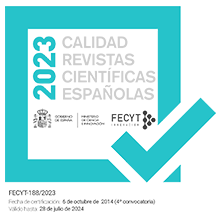L'Alguer i els països de llengua catalana. Propostes per a una planificació lingüística
Resum
Given the obvious regression in use and knowledge of the vernacular Alghero language, it becomes necessary to reconsider the working model used to this moment to preserve the variety of the Catalan language spoken in Alghero (Sardinia). A clear reading of the past, as well as an analysis of the present and of the context, allows the author to put forward new patterns for future work. The inhabitants of Alghero have abandoned their vernacular language, associated with the rural and the poor, in favor of Italian, which enjoys greater prestige since Italy and its standard language have become a new framework of reference with positive connotations. Given the complexity of the situation, language planning must be sustained on solid foundations: recovering the vernacular as part of the historical and cultural heritage should also imply a certain degree of economic, social and cultural emancipation of the Alghero community. Such progress must be the result of the collaboration and interrelation of the city of Alghero with other Catalan-speaking nations. In order to avoid negative results and prevent ill feelings among the population, such planning should be programmed in a conscientious and unrushed manner. Changing the linguistic behavior of Alghero people will entail an intervention in their environment and the creation of a need to use the receding language, so that they understand why it is convenient to learn it. The increase in economic and commercial relations with Catalan-speaking nations will introduce a new and positive point of reference. In turn, it will become necessary to work within the Alghero community on strictly llinguistic issues, such as the codification of the Alghero language (a substandard language different from standard Catalan), its learning and the extension of its use within the community.



